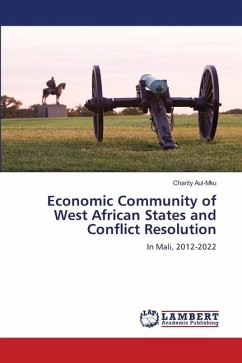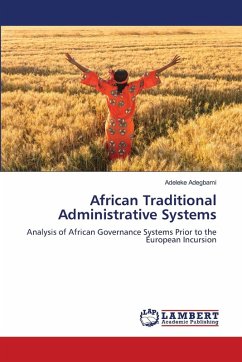
Arab African Revolt States
The Missed Path of Re-institutionalization Vis-Via Democracy and Conspiracy (2010-2014)
Versandkostenfrei!
Versandfertig in 6-10 Tagen
36,99 €
inkl. MwSt.

PAYBACK Punkte
18 °P sammeln!
While uprising and revolt in the Arab African states have begun to gain attention among scholars of social and political revolts, and in the western world itself, there has been remains almost no scholarly analysis of it, not least of all in political and sociology sciences. It discounts the pathology explanation for political and social revolt, a view that is often driven by scholars of the region's political culture, and instead investigates the political outcomes of the national revolts, mainly the political structure and dynamics that have shaped the phenomenon by the protests in the Arab ...
While uprising and revolt in the Arab African states have begun to gain attention among scholars of social and political revolts, and in the western world itself, there has been remains almost no scholarly analysis of it, not least of all in political and sociology sciences. It discounts the pathology explanation for political and social revolt, a view that is often driven by scholars of the region's political culture, and instead investigates the political outcomes of the national revolts, mainly the political structure and dynamics that have shaped the phenomenon by the protests in the Arab African states. The region still searches for political, social and economic development and a fair place within the globalization process have all not helped to create an environment of a finished revolt. Social and political revolt can often be helped to create an environment for economic prosperity, standard health and educational system. The book argues that four years later, the Arab African revolts, one of the longest sitting uprisings in the region had not arrived to a stable change. How are these changes making sense?












